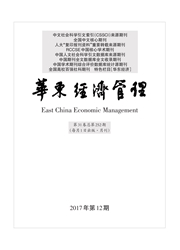

 中文摘要:
中文摘要:
上市公司管理层频繁发起的并购是出于其过度自信还是私利驱动?依据行为经济学和委托代理等基本理论,文章选取2008一2011年发生并购事件的上市公司为研究样本,利用Logit回归模型和负二项回归模型,将管理层过度自信的心理偏差和追求个人收益的自利动机纳入同一框架进行研究.研究结果表明,尽管发生并购事件的上市公司中管理层过度自信的心理状态普遍存在,但管理层发起频繁并购的动机更多的是出于其对个人私利的追求;而在上市公司频繁并购的诱因中,管理层的过度自信具有“杠杆效应”,即:管理层过度自信的心理状态会增强其为了谋取货币薪酬和在职消费等个人私利最大化而实施高频率并购活动的意愿.研究发现为公司连续并购的动因理论做出了增量贡献,也利于丰富基于中国制度背景的并购相关研究议题的经验证据.
 英文摘要:
英文摘要:
Are the frequent M&As driven by the management of the listed companies out of their overconfidence or personalbenefits- According to the basic theories of behavioral economics and principal-agent,the paper selects the listed compa-nies with M&A events during the year of 2008 to 2011 as the research samples,and employs Logit regression model andnegative binomial regression model,and makes a study by incorporating the psychological deviation of the management over-confidence and the self-serving motive for pursuit of personal benefits into the same framework. The results show that: Al-though the management of the listed companies which initiates M&As is common with overconfidence,more M&As are mo-tivated by the management’s pursuit of personal benefits; The management overconfidence plays a role of “leverage ef-fect” in the incentives of frequent M&As of the listed companies,that is,the management with overconfidence is morewilling to initiate high-frequency M&A activities,which are motivated by the pursuit of the maximization of personal bene-fits of monetary compensation and non-pecuniary compensation. The study makes contributions to extending the motive theo-ry of continuous M&As,and enriches the empirical evidence of M&As in the context of the Chinese regime
 同期刊论文项目
同期刊论文项目
 同项目期刊论文
同项目期刊论文
 期刊信息
期刊信息
